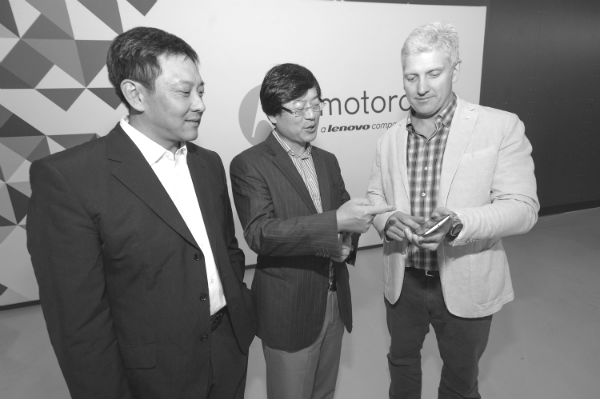Chinese PC giant Lenovo, fresh off completing its $2.1 billion acquisition of IBM’s (IBM) former x86 server business, now has jumped all the hurdles to finalize its $2.91 billion buyout of Google’s (GOOG) Motorola Mobility unit.

Chinese PC giant Lenovo, fresh off completing its $2.1 billion acquisition of IBM’s (IBM) former x86 server business, now has jumped all the hurdles to finalize its $2.91 billion buyout of Google’s (GOOG) Motorola Mobility unit.
The deal, which was first announced in January, took nearly a year to gain worldwide regulatory approval. With the acquisition, Lenovo immediately laid claim to being the world’s third largest smartphone maker, a position researcher IDC said, based on its figures, belongs to rival Xiaomi.
Motorola will operate as a wholly owned subsidiary of Lenovo, with its headquarters remaining in Chicago. Rick Osterloh will remain as Motorola president and chief operating officer, while Liu Jun, Lenovo executive vice president and president of Lenovo’s Mobile Business Group, will chair the Motorola Management Board.
At this point, there’s no word how many of Motorola’s 3,500 employees worldwide, including about 2,800 in the United States, Lenovo will retain.
“Today we achieved a historic milestone for Lenovo and for Motorola and together we are ready to compete, grow and win in the global smartphone market,” said Yang Yuanqing, Lenovo chairman and chief executive. “This partnership has always been a perfect fit. Lenovo has a clear strategy, great global scale, and proven operational excellence. Motorola brings a strong presence in the U.S. and other mature markets, great carrier relationships, an iconic brand, a strong IP portfolio and an incredibly talented team. This is a winning combination.”
For Lenovo, the Motorola Mobility and IBM x86 server deals means that its customers can standardize on the Chinese manufacturer’s platforms from PCs to servers to mobile phones. Boiled down it means Lenovo owns three critical endpoints—and could alter the IT and mobile device playing field quite a bit.
The Motorola purchase not only gives Lenovo an immediate strong footing in the Americas for smartphones but also a market presence in Western Europe to complement a solid position in its native China. It will be interesting to see how Lenovo handles Motorola’s short product lineup, which the company has pared down to the Moto X, Moto G and Droid series and its Moto 360 smartwatch.
Liu Jun said Lenovo expects to sell more than 100 million smartphones and tablets this year, banking on leveraging its brand recognition in China, momentum in emerging markets and Motorola’s presence in mature markets. Lenovo officials also reiterated earlier statements that the company intends to bring the Motorola business to profitability by mid-2016 at the latest.
Under terms of the deal, Google will retain most of the Motorola Mobility patent portfolio, including current patent applications and invention disclosures. Lenovo gains ownership of some 2,000 patent assets, the Motorola Mobility brand and trademark and the vendor’s future product road map. In addition, it will gain access to the Motorola intellectual property portfolio through a licensing agreement with Google, the terms of which were not disclosed.
The final purchase price of $2.91 billion included approximately $660 million in cash and 519,107,215 newly issued ordinary shares of Lenovo stock, with an aggregate value of $750 million, representing about 4.7 percent of Lenovo’s shares outstanding, which were transferred to Google at close. The remaining $1.5 billion will be paid to Google by Lenovo in the form of a three-year promissory note. A separate cash compensation of approximately $228 million was paid by Lenovo to Google primarily for the cash and working capital held by Motorola at the time of close.
Lenovo made a point of noting that the Motorola deal marked the fifth time since 2005 the company has been cleared by the Committee on Foreign Investment in the United States (CFIUS) to acquire a U.S. business.
Read more about:
MSPsAbout the Author(s)
You May Also Like


